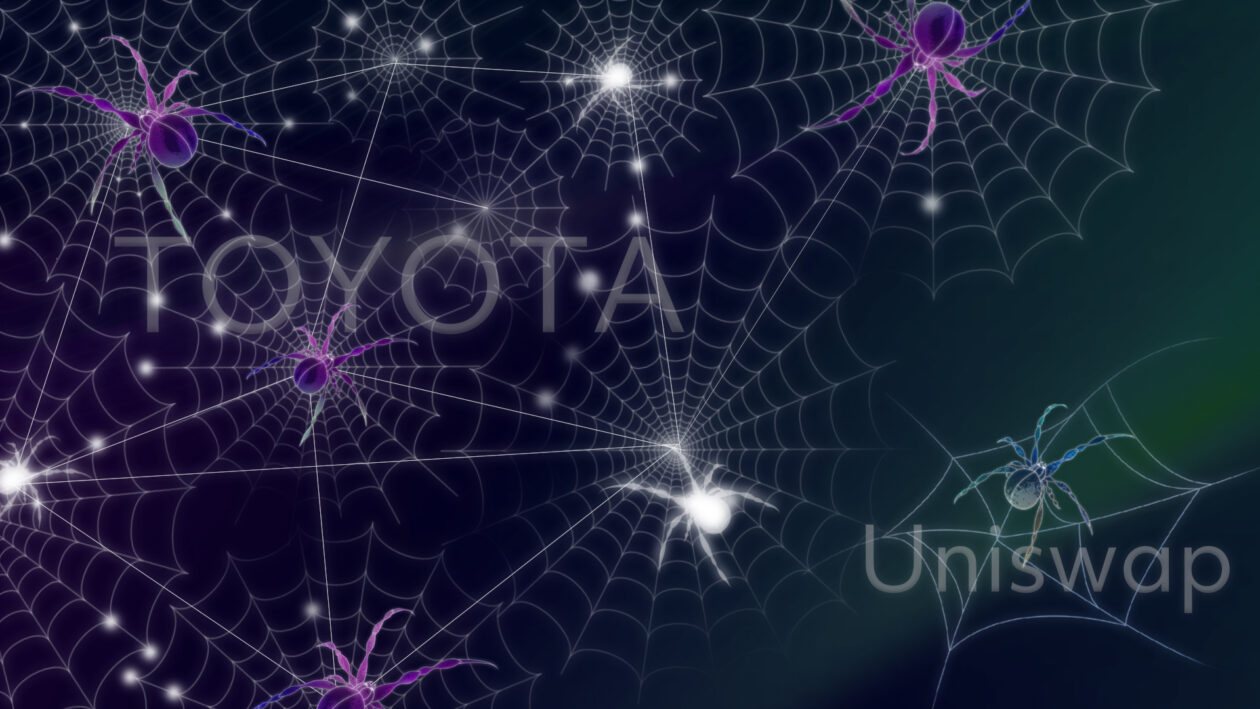A decentralized autonomous organization (DAO) is, by its very definition, decentralized. The authority it wields over a given treasury is spread out over a number of actors, rather than concentrated — or centralized — in one pair of hands.
At least, that’s the idea.
For the many advocates of the DAO organizational model — there were some 6.9 million DAO governance token holders globally as of May 23 — that ideal makes DAOs the perfect operational medium for achieving the decentralized financial goals underpinning the digital economy.
But for Pat Rawson, co-founder of innovation network Curve Labs, today’s DAOs continue to bump up against one glaring contradiction.
Namely, they fail to live up to the decentralized ideal contained within the name — particularly when held up against the examples of genuine decentralization found in a number of the world’s biggest transnational corporations (TNCs).
Toyota Group
“I like to go back to the example of Toyota,” said Rawson. “We think of Toyota as this monolithic brand, right? But really, Toyota is eight different mother nodes. And those nodes sit at the very top of a flowing system of ownership with hundreds of child nodes that emerge from them and exchange with each other.”
The vast web of child nodes making up the wider Toyota Group includes an estimated 2,239 subsidiary enterprises active across 125 different countries.
The Tokyo-headquartered giant is the world’s largest automaker by vehicles sold. It can also be considered an example of the Japanese keiretsu business model.
As such, its eight principle mother nodes — which include parts manufacturers Denso and Aisin, alongside Toyota Motor Corporation itself — form a conglomerate of largely autonomous entities linked together via cross-shareholding agreements.
These agreements signal the long-term reciprocal commitment between each firm. Therefore, despite the degree of indirect control exerted over entities at often considerable geographical and operational distances from group headquarters, they all weave together as a tightly interconnected whole.
Contemporary DAOs
Rawson argues that the joint ventures and complex intertwined business relationships connecting firms in TNC structures like Toyota Group are largely absent from today’s DAOs — a problem for any claims of decentralization.
“Compared to a TNC like Toyota, there is no comparably fractalized control network in blockchain today,” he wrote in a 2021 blog post. “Few DAOs spin ownership — and significant financing — out of themselves into their local organizational neighborhood.”
The post offered the example of cryptocurrency trading protocol Uniswap as an “apples and oranges comparison” with TNCs.
The exchange operates as a decentralized financial platform through smart contracts. These facilitate trades of crypto tokens without recourse to a centralized market maker, such as the Nasdaq and other forms of stock exchange.
It also operates as a DAO, meaning that governance over decision-making processes is decentralized and spread out among a community of Uniswap token holders.
Yet structurally, as Rawson points out, the platform remains centralized.
In terms of Uniswap’s control network, it boasts only three independent operational nodes — the business itself, a grant-giving council and a governance DAO managing a significant treasury, which as of May 23 stood at US$2.15 billion.
This organizational structure therefore “runs contrary to today’s corporate control networks, as TNCs tend to wheel and deal with a diverse range of shareholding organizations and individuals,” Rawson wrote in the blog post.
Conversely, contemporary DAOs in the Uniswap mold “lack the means to distribute ownership effectively — or at all, frankly. They have money to put to use — but little on-chain means to use it.”
Solutions
Uniswap has, for its part, attempted to use its treasury to support products capable of filling out its ecosystem and thereby expand its decentralized control network. But the avenues for growth are so far limited.
Whereas Toyota Group, founded in 1926 as Toyota Industries, has almost 100 years of growth and partnership-building experience, Uniswap — founded in 2018 — is only five years old. It is also operating within a nascent industry that currently has far fewer potential contributors than the global auto industry.
So how to effectively build out a decentralized control network? For Rawson, the answer is right in front of us.
“I’m not saying that the global corporate order that we have today is a good system, but I would say that this is the dominant financial system that we have,” he said. The complexities of that system, its reach and its intertwined relationship with the state can serve as a model for DAOs to incorporate and improve upon.
But where the global corporate order, despite its geographic diversity and structural decentralization, still often operates what Rawson calls a “very totalitarian,” top-down system of control, DAOs have a built-in mechanism for bottom-up power distribution.
If harnessed effectively, that mechanism could lead to rapid growth and the proliferation of a genuinely decentralized system of global corporate governance built around DAOs in a manner reminiscent of the cross-shareholding agreements between entities in the Toyota Group.
To illustrate how that might happen, he again uses Uniswap as an example.
In the example, the Uniswap DAO decides to create a joint venture with another DAO. The rights to govern that new organization are split — 33% to the Uniswap DAO, 33% to the other DAO and then 33% to be held by a new token holder class for the new joint venture.
“Now, if you do that once, that’s still a pretty centralized system,” said Rawson. “But if you do that 100 times and you get each node in the system to do that as well, what you start to have is a system that begins to resemble the global corporate order that we have today.”
From there, “real-world” corporate expansion begins to happen and DAOs — genuinely decentralized autonomous organizations deserving of the name — usher in an era of more equitable control networks that, like Toyota and other TNCs, can achieve a global reach, he added.






